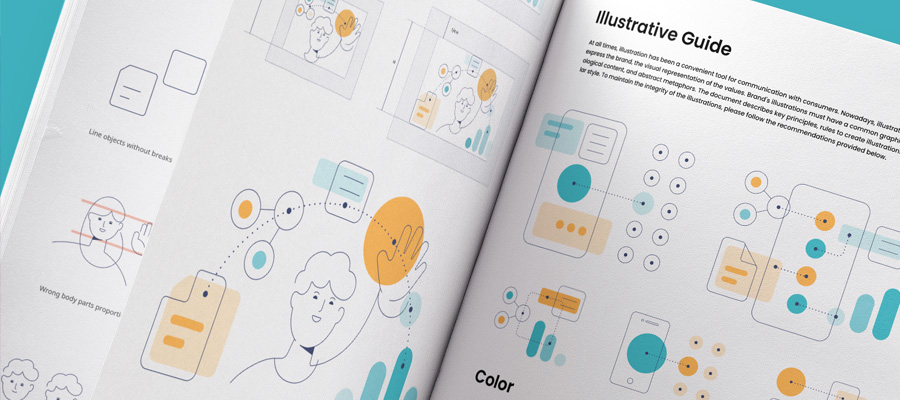The first thing to do to pass an oral exam (and prepare it better) is to organize yourself and have a method, so as to rationalize the times and achieve results. Keeping your exposure trained is essential because repeating aloud also helps you memorize the contents, prepare yourself carefully to overcome tensions and stress, and arrive at the day of the oral exam calmly and relaxed.

illustration by Jonathan Holt
Let's see together the tips to keep in mind to prepare for an oral exam in the best possible way.
Focus On Your Study Method
To pass a university exam in the best possible way, it is essential to create your own study method.
Take notes when needed, as it helps you focus attention and write down important details. Then, after class, read them again, they will enter your mind so easily. Follow other people's oral exams - it's a very useful way to understand how your test can go. You can get an idea of the type of questions required, the topics covered and how they are examined, and also the duration of the exam.
Based on this information, you can organize the material needed to study and draw up a strategic plan on how to divide the entire program. Once you acquire a mechanism, it will be much easier to study for subsequent exams. And if you feel like you need more time, and you won’t be able to finish another assignment, you may spare yourself some time for preparation by hiring an essay writer who will complete your essays for you.
Plan And Organize The Study
When you have the dates and all the necessary materials, you can plan the work. First rule: never study everything together, day and night, or maybe just the night before. It is disastrous, for the body and for the mind. You will be tired and stressed, and you will not be able to store concepts.
Establish how many hours you want to devote daily to studying and divide the material into micro topics. Plan your study in detail by adjusting your calendar to the daily hours that you can dedicate to this activity.
When you have reached your goal, you can go out with friends, see a movie or a TV series, have an aperitif, go to the gym, go for a walk or shop.

If you have to study two subjects at the same time, it would be good to dedicate yourself to the more difficult subject in the morning, when you are fresher and more energetic, and leave the other one for the afternoon. Plan to study even a few hours, the important thing is that there is consistency: stay focused, without distractions such as the telephone, music, television, and more.
Try to finish the program a few days before the date of your exam, so you will have time to dedicate yourself only to the review. Give yourself small rewards when you reach a goal: they serve to gratify your commitment and you will be prouder of yourself, and therefore stronger.
Repeat Out Loud
Read the entire book or handouts you own page by page. Emphasize the most important parts and summarize them in small captions, diagrams, or argumentative texts. Writing helps to memorize the most meaningful concepts. After preparing your patterns, always expose them aloud.
Repeating aloud helps you to understand if you have any gaps in preparation and, if so, refine all the steps where you feel weakest. Start with the book open in front first and then close it the following times. Always try to express yourself in technical and specific language that is necessary, when necessary, but in your own words. The more times you repeat, the smoother the exposure, the more confident you become, and the better the performance.
The extra advice? You can ask a friend or relative if they can listen to you, it can become an exam dress rehearsal, and if you're shy, it's a great way to overcome your inhibitions.
Prepare Your Speech And Ask Yourself Questions
If you want to understand how to study for an oral exam, imagining the questions the professor might ask is a great strategy.
For each chapter you study, think of questions that might have to do with that topic. Try reviewing the questions you wrote down, scrolling through all the contents of the subject, and dwelling on the more complex ones. It serves to focus on the exam by involving different areas of the brain.
In addition to this, answering questions also helps you to articulate more complex speeches. Obviously, this only increases your speaking skills during the final test, benefiting its success and the final result.





















